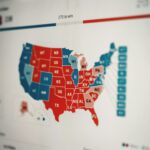Weekly Writers Round-Up: What COVID-19 Means for Immigration, the Tech Sector, and Unemployment
Each week, we’ll be featuring opinion pieces from the alumni and current participants of AF’s Writing Fellows Program. A few highlights from the past week are below. Do you dream of having bylines like these? Learn more about how the Writing Fellows Program can help boost your writing career.
No, Immigrants Aren’t Causing the Coronavirus by Natalie Dowzicky (Summer 2019) in The National Interest
There are plenty of causes to blame for the coronavirus—immigrants aren’t one of them. Of course, there’s no persuading President Donald Trump of that.
Trump continued his long-standing crusade against immigrants in the fineprint of the CARES Act, signed into law on March 27. It includes $2 trillion worth of direct stimulus payments to U.S. families, but excludes most U.S. citizens and legal immigrants who have spouses who are here illegally…
Foreign techies are helping America fight the pandemic. We need more of them by Sam Peak (Spring 2018) in the Deseret News
The Trump administration recently issued an executive order that could block nearly 360,000 green card applications annually, effectively cutting immigration levels by roughly one-third. Some immigration skeptics, however, claim that the proclamation doesn’t go far enough. Executive director for the Center for Immigration Studies Mark Krikorian, for example, recently called on the president to suspend the H-1B program, a visa used to recruit highly skilled guest workers.
“Failing to pause this program,” he wrote, “would make a mockery of the president’s claim to want to preserve American jobs for American workers.” Fox News’s Tucker Carlson echoed these sentiments, warning viewers that if they lost their jobs, companies can still import cheap IT workers from Asia to replace them…
Job Losses Hit Workers Without College Degrees The Hardest by Preston Cooper (Fall 2015) in Forbes
To call the most recent employment report dismal is an understatement. The unemployment rate in April 2020 shot up to 14.7%, up from 3.5% in February, reaching the highest rate since modern recordkeeping began in 1948. Nonfarm payroll employment dropped by over 20 million as the coronavirus pandemic forced the closure of businesses nationwide.
Workers without college degrees were hit particularly hard. The unemployment rate for people with only a high school degree reached 17.3%, exceeding its peak during the Great Recession by 6 percentage points. People with at least a bachelor’s degree also saw heavy job losses, but their unemployment rate mercifully remained in single digits, at 8.4%…




